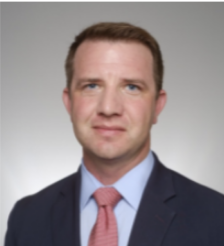Jason Hudson, Ph.D., F-ABFT
Toxicology Section Chief Alabama Department of Forensic Sciences Hoover, Alabama
Mass Spectrometry Techniques for the Detection of Novel Psychoactive Substances in Forensic Casework
Abstract
The emergence of novel psychoactive substances (NPS) has proven to be a significant analytical challenge for the detection and quantitation of these drug targets in biological specimens. The recent adoption of tandem mass spectrometry (LC-QQQ) and high resolution mass spectrometry (LC-QTOF) instrumentation at the Alabama Department of Forensic Sciences has provided scientist with instrumentation that has the sensitivity, specificity, and flexibility to address these challenges. The work presented in this seminar will focus on the method development, validation, and application of LC-QTOF and LC-QQQ mass spectrometry techniques for the detection of fentanyl analogues, synthetic cannabinoids, and designer benzodiazepines in forensic casework.
Biosketch
Dr. Jason Hudson is employed as the Forensic Toxicology Section Chief at the Alabama Department of Forensic Sciences, Birmingham Laboratory. He holds a Bachelor of Science in Forensic Chemistry from the University of Mississippi, a Master’s degree in Chemistry, and a Ph.D. in Chemistry and Biophysical Chemistry from the University of Alabama at Birmingham. He is certified as a Fellow with The American Board of Forensic Toxicology and an active member of The Society of Forensic Toxicologists (SOFT). His responsibilities as the Toxicology Section Chief include managing the scientific staff, reporting and reviewing analytical data, serving as an expert witness in court proceedings, and conducting research, development, and validation on QQQ and QTOF instrumentation. During his graduate studies he conducted drug development research that was focused on the interaction of small molecules, derived from natural products, with DNA and proteins for the prevention and treatment of cancer. After receiving his Ph.D., he accepted employment as a Forensic Toxicologist at the Virginia Department of Forensic Science in Richmond, VA. There he conducted analysis of biological specimens for the presence of drugs and alcohol, carried out method development and validation for LC-MSMS instrumentation, conducted data technical reviews and testified in court as an expert witness approximately 200 times.
Date
Date(s) - December 11, 2018
6:00 pm - 9:00 pm
Emplacement / Location
Morris and Rosalind Goodman Agora

